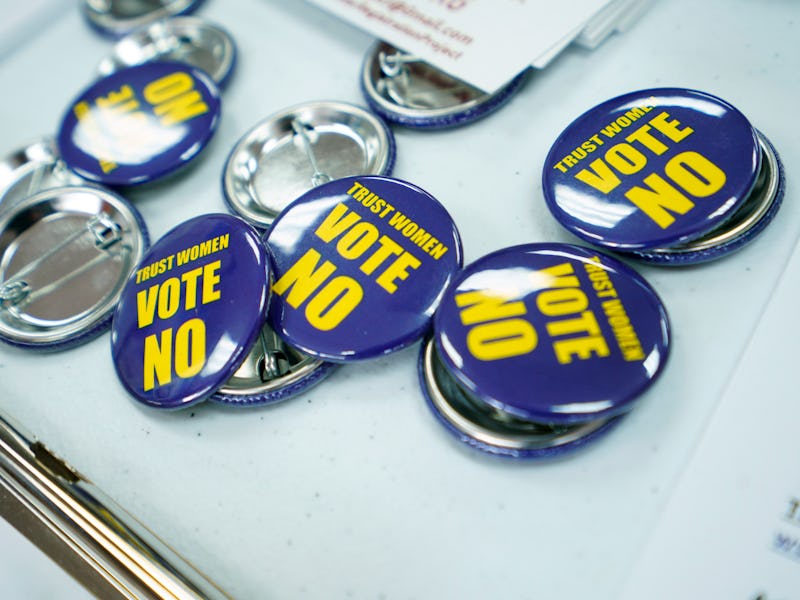The first statewide referendum on abortion since SCOTUS changed everything was a resounding clap back.


Kansas voters just forcefully rejected an anti-abortion ballot measure
On Tuesday evening, voters in Kansas’s primary elections overwhelmingly rejected a proposed constitutional amendment to potentially restrict abortion access in the deep-red state. The vote, the country’s first statewide referendum on abortion since the Supreme Court ripped away the federal right to bodily autonomy this past June, had been closely watched as a potential political bellwether ahead of the upcoming midterms, where abortion access has become one of the central campaign issues.
To be clear, the margin by which voters rejected the bid to strip abortion protections from the Kansas constitution (59%-41% at current count) leaves little room for doubt that the public is in favor of reproductive health rights and bodily autonomy — even in a place as thoroughly conservative as Kansas. The proposed amendment was shot down in both blue-leaning districts and red ones. As The Washington Post’s Philip Bump noted on Wednesday morning: “There were 14 counties that backed Trump in 2020 and voted against the proposed amendment this week, home to nearly a third of the state’s population. Those counties backed Trump by 20 points and ‘no’ by 13 points.” Despite pathetic contortions on the part of conservative pundits to claim otherwise, protecting abortion access seems wildly popular across much of the political spectrum.
Conservative pundits aren’t the only ones spinning Tuesday’s vote, however. While an unambiguous victory for reproductive rights is an extremely good thing, it’s crucially not a victory for the Democratic Party itself. To the extent that there is electoral momentum, it’s around the issue of abortion access specifically. It does not mean, however, that voters are necessarily immediately gravitating toward Democratic candidates themselves as a result. Consider the dynamic that helped make the Kansas vote so lopsided: Republicans seemingly turning out en masse to reject the anti-abortion access amendment. Now ask yourself whether those same Republican voters will likely turn out and vote for Democrats come November in a race between people, not single issues. It’s certainly possible, I suppose, but it’s hard to see that as an ironclad electoral strategy for victory.
There is clearly momentum here — and yes, Democrats can and should capitalize on it if they want even a chance of holding onto Congress this fall. But that’s a very different thing from them having that momentum unto themselves. Abortion as a single issue is compelling when that single issue is on the ballot. But translating this into broader support for the Democrats as a whole is no guarantee given both how the party largely bungled its reaction to the initial Supreme Court decision repealing Roe v. Wade, as well as where abortion access ranks as a primary concern among voters. According to last month’s YouGov/Economist polling, it’s somewhere in the middle.
Abortion access may be popular. The Supreme Court’s decision to restrict it may be unpopular. But that is by no means a guaranteed win for Democrats in November.
If Democrats do eke out any sort of midterm victory (or at least mitigate a historically predicted wipeout), the groundswell of support around abortion rights will certainly play a part. Democrats just need to find a way to ride it to the polls in November.